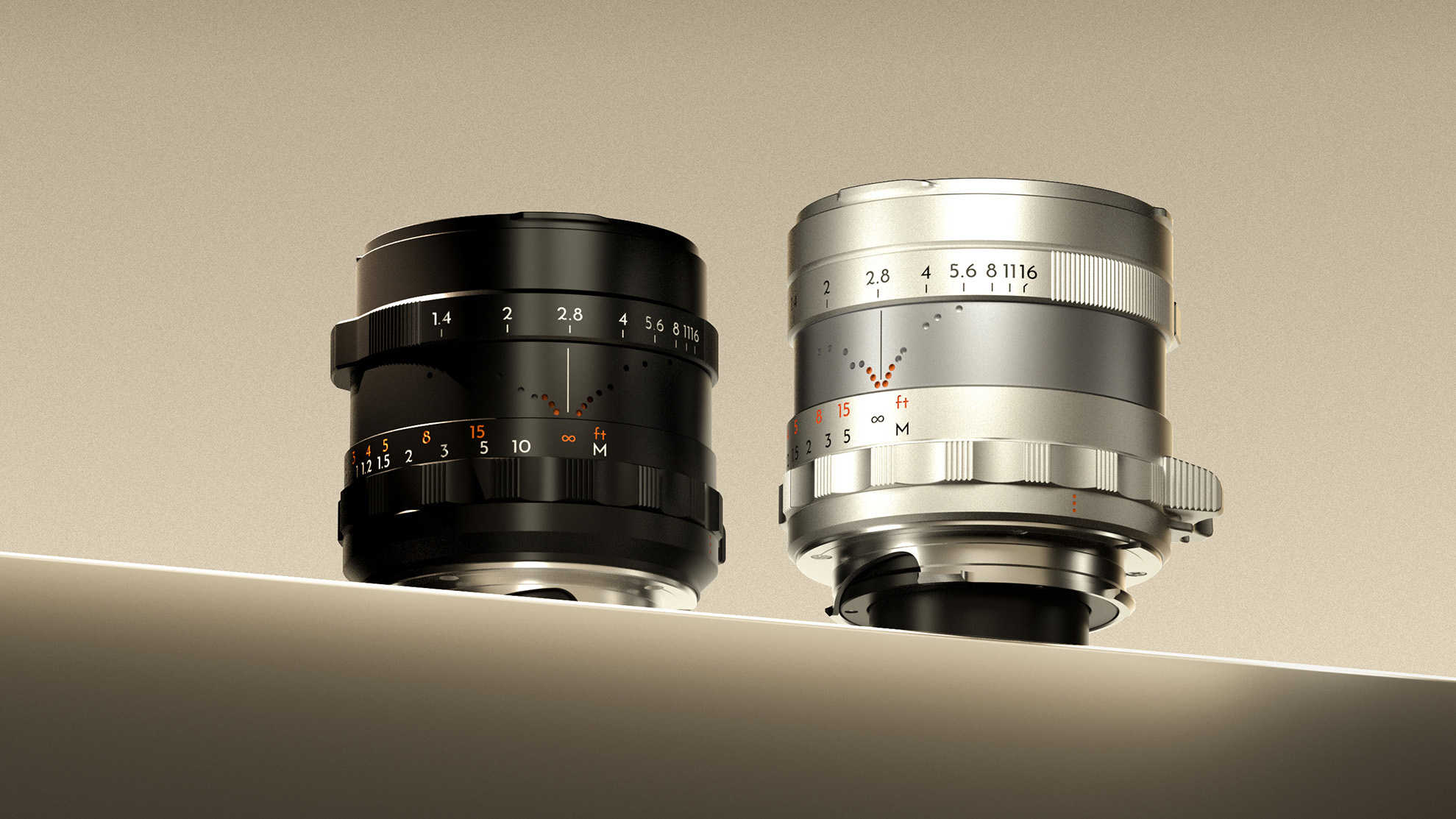Bond villain lair, or underwater eco farm? Photographer talks award-winning work
We talk to last year's Environmental Photographer of the Year Giacomo d'Orlando about his winnng project, Nemo's Garden
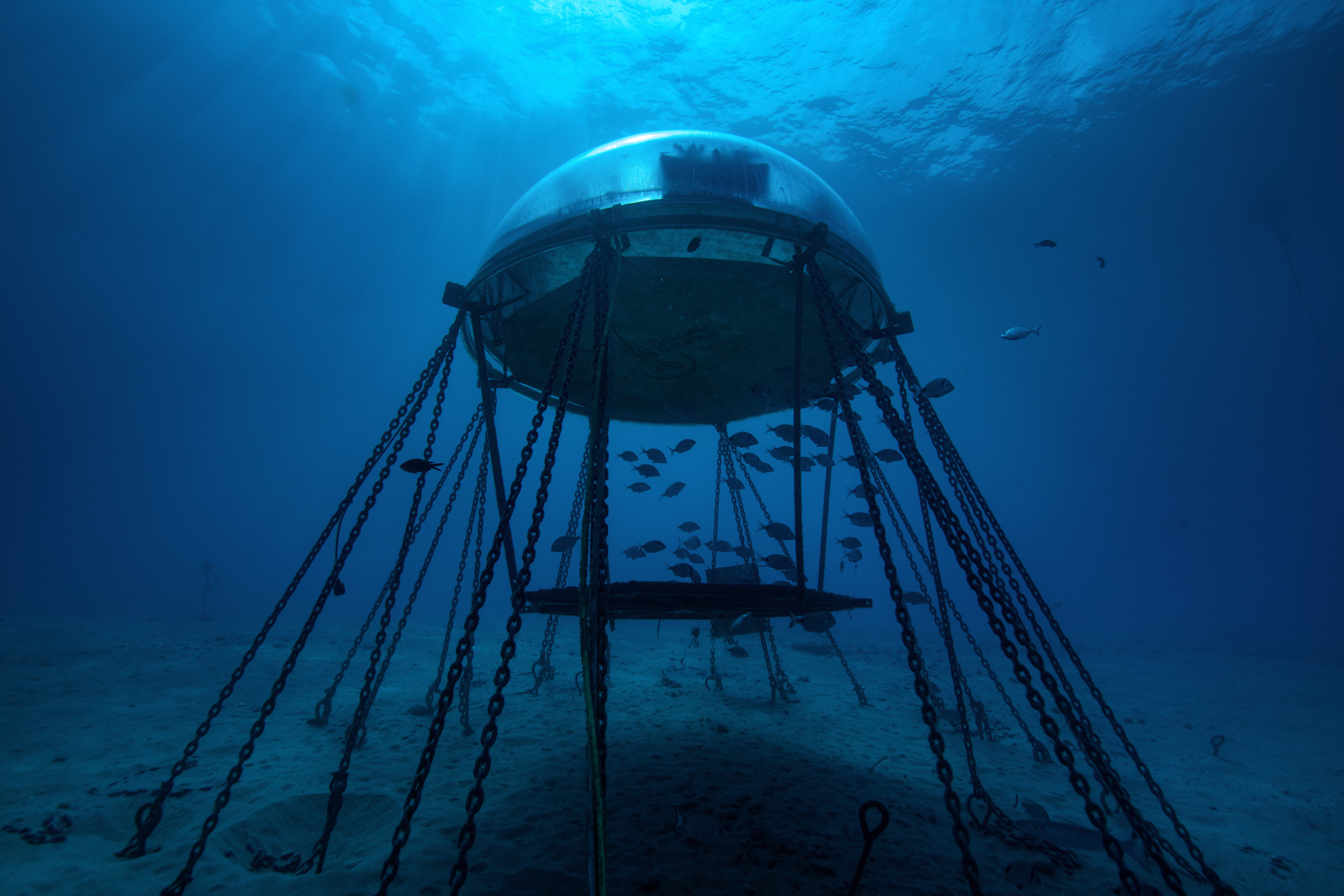
In less than two months time, The Environmental Photographer of the Year 2022 will be announced. The award has never been more critical, as it continues to shine a spotlight on the most inspirational environmental photographers from across the globe and raise awareness of the environmental issues our planet is facing.
Last year, Italian photographer Giacomo D'Orlando was recognized for his work documenting a self-sustainable underwater farming project, which could be an eco-friendly solution to current methods of farming that involve deforestation and loss of habitat.
• These are the best waterproof cameras
Giacomo has had an affinity for photography from an early age, and has always enjoyed watching nature documentaries with his grandfather. At 21 years old he decided to pursue a career in photography, and has since gone on to win several awards including the Sony World Photo Award and Environmental Photographer of the Year. He has also been published in National Geographic, The Washington Post and Stern Magazine.
With the next installment of Environmental Photographer of the Year just around the corner, and the COP27 Summit taking place in just a few weeks' time, we caught up with Giacomo to chat about what winning the award meant to him, how he ended up an environmental photographer, and why it's so important to raise awareness of climate change and the environmental impacts it has.
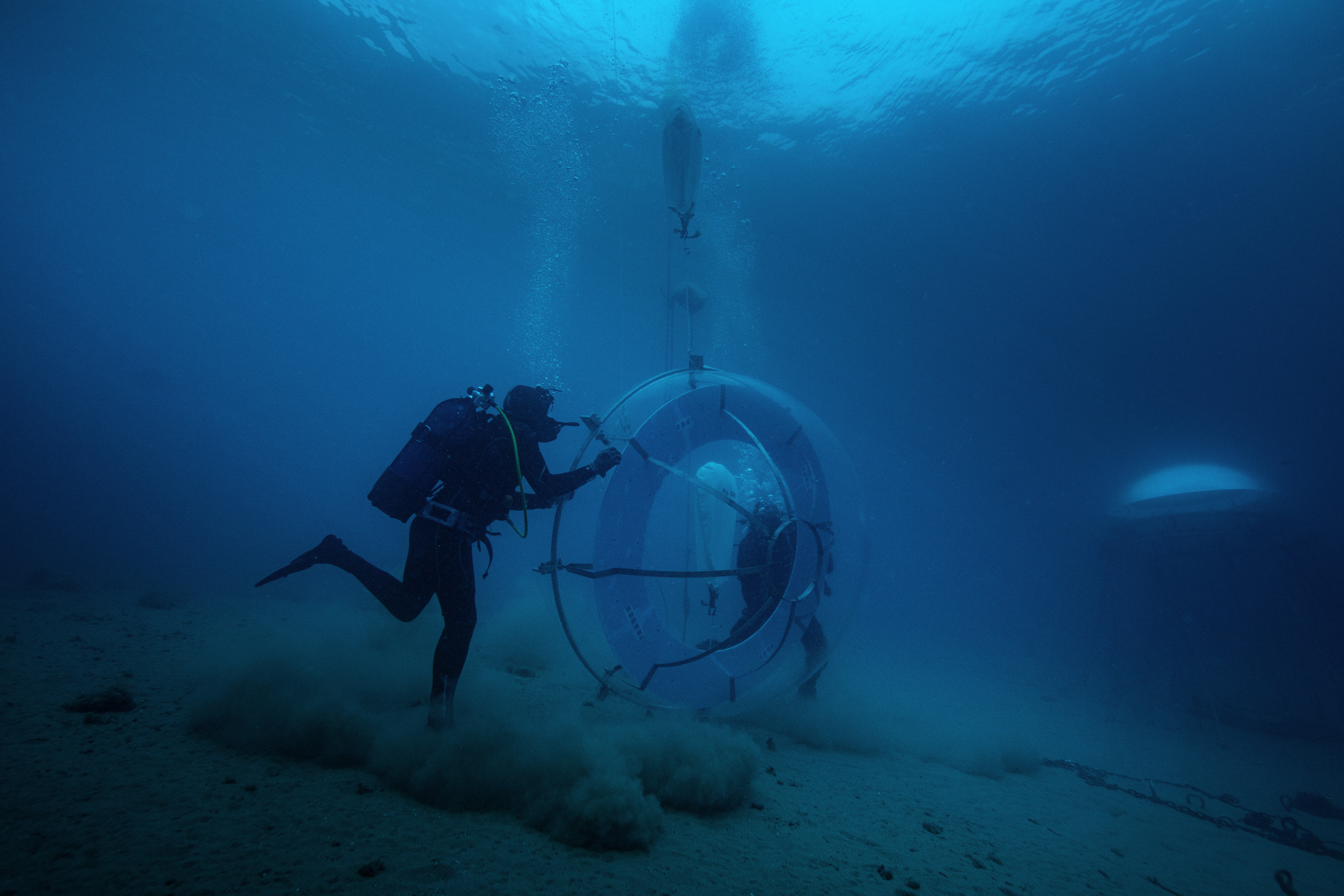
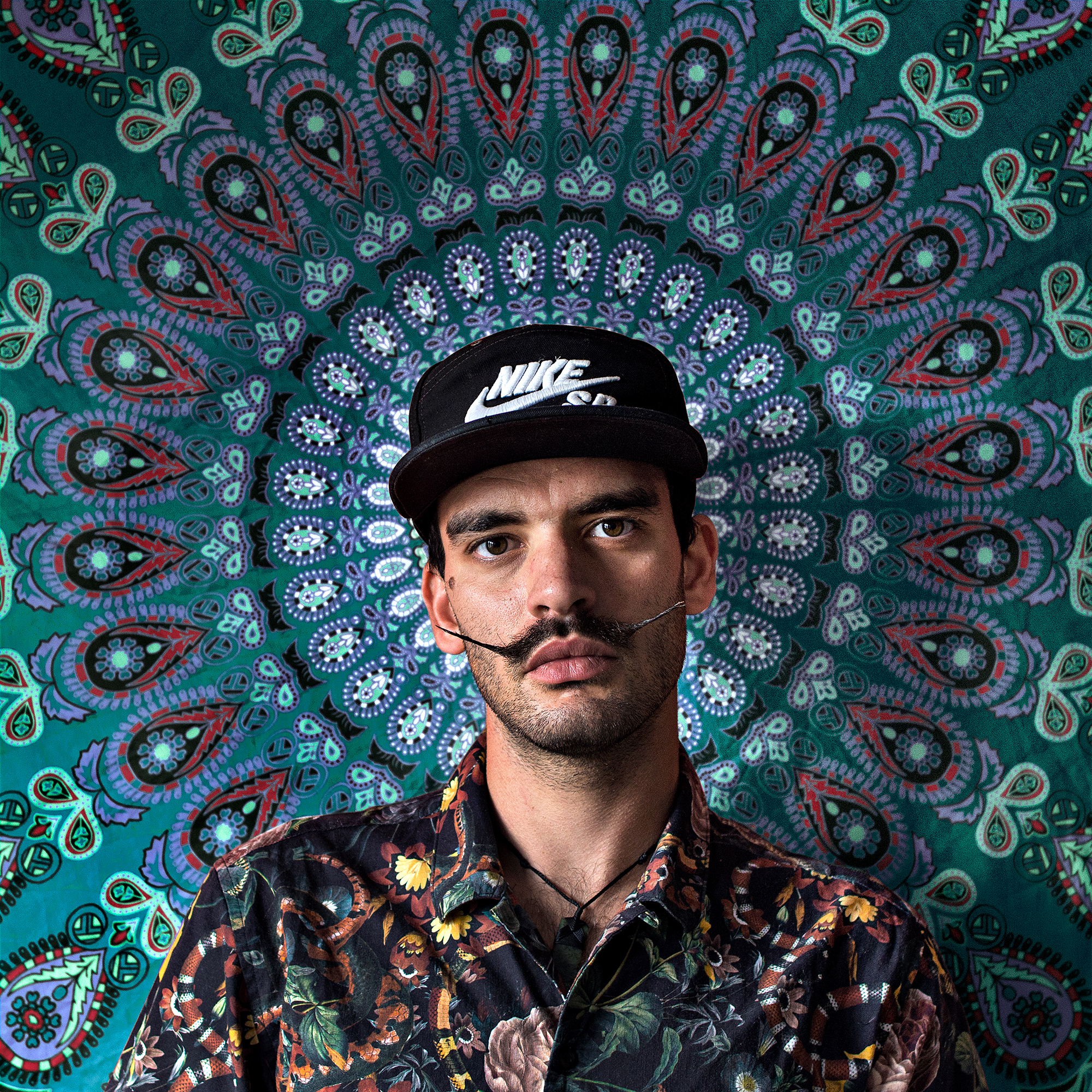
Giacomo D'Orlando is a documentary photographer who concentrates on telling stories about environmental issues. His work looks at how the increasing pressure brought about by climate change is reshaping the planet, and how present-day society is reacting to the new challenges that will characterize our future. He received prestigious awards such as POYI in Science & Natural History, Sony World Photography Award in the Environmental category, and UN World Ocean Day Photo Contest in nature-based solution and ocean exploration.
When did you turn to documentary photography and what specifically made you concentrate on the environment?
I have been interested in photography since I was a child, although it wasn’t until I was 21 that I realized it was what I wanted to pursue as a career. I had dreams of traveling while sharing stories and inspiring people all over the world. My grandfather was passionate about Jacques Cousteau and National Geographic documentaries, and I remember how much I enjoyed watching them together on TV, and so I decided I wanted to become a documentary photographer.
I concentrated on the environment as it should be a priority to educate people about the importance of our environment, especially now that we are reaching an irreversible breaking point. I want my work to inspire people to take action and preserve and protect our planet.
Get the Digital Camera World Newsletter
The best camera deals, reviews, product advice, and unmissable photography news, direct to your inbox!
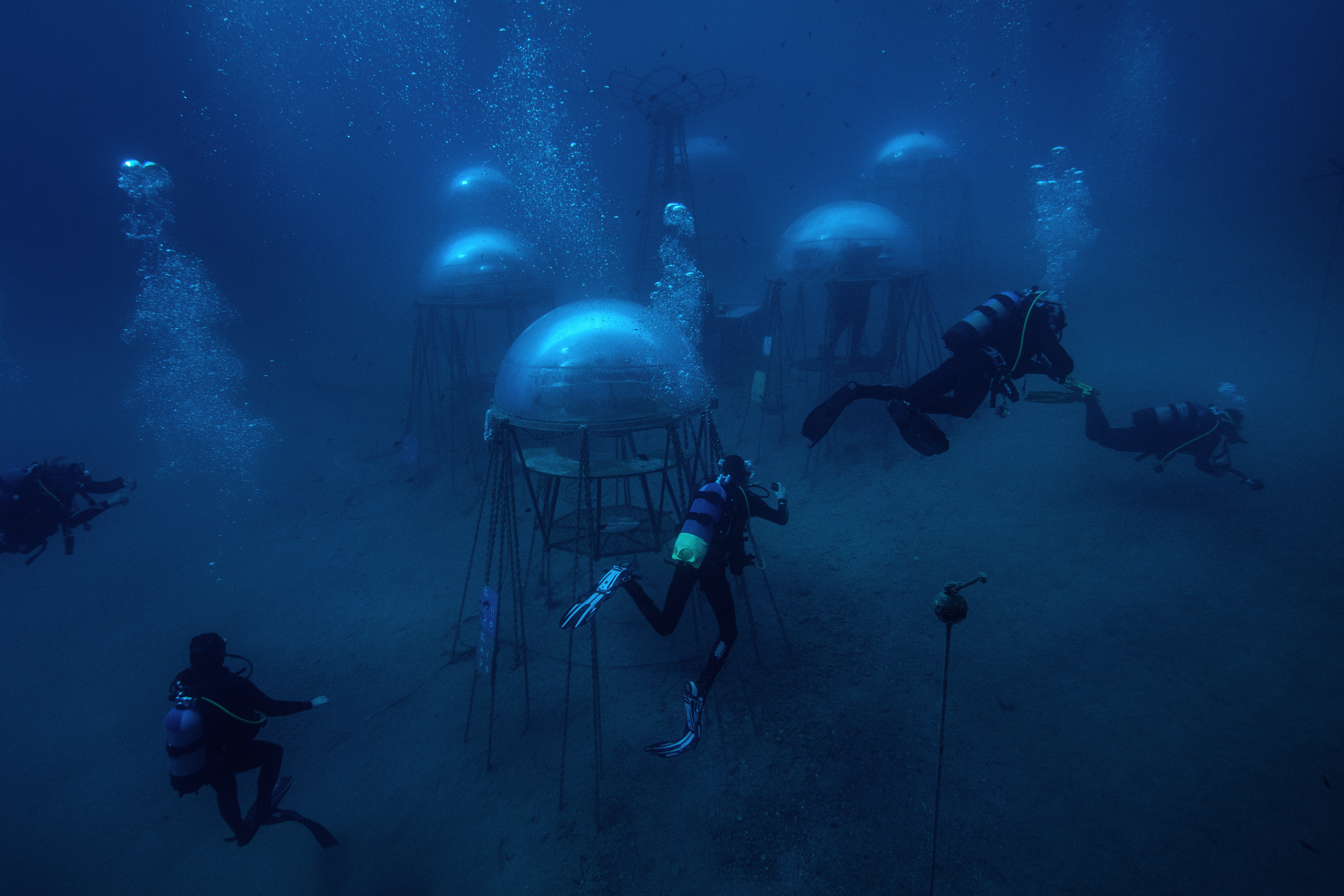
You've got an impressive list of accolades to your name. Have any awards been particularly special?
Thank you very much, I’m truly grateful for every award and the chance to platform my work and hopefully inspire more and more people to care about our planet.
I’m pretty attached to the Award of Excellence of POYi in the Science and Natural History category. The competition was at the maximum levels and I had to compete with some of the photographers that I have always loved since the beginning of my career and other colleagues that I really esteem. I have never thought I could have reached this achievement and for me, it’s been just mind-blowing.
Having my photography shortlisted for the Environmental Photographer of the Year Award is also a favorite as so much work went into capturing my submissions. From having to learn to dive and take diving exams in order to document Nemo’s Garden, to visiting Noli four times in order to photograph the various phases of the project, and visiting Pisa University for the laboratory phases of the project, it was an incredible experience.
I’m really proud to be able to offer a positive outlook on what a more climate-conscious future could look like on an international stage, especially as last year’s photos were exhibited in conjunction with the COP26 conference. Looking forward, winning the Environmental Photographer of the Year Award would make me even more proud of myself and my work, and surely would be an unforgettable achievement.
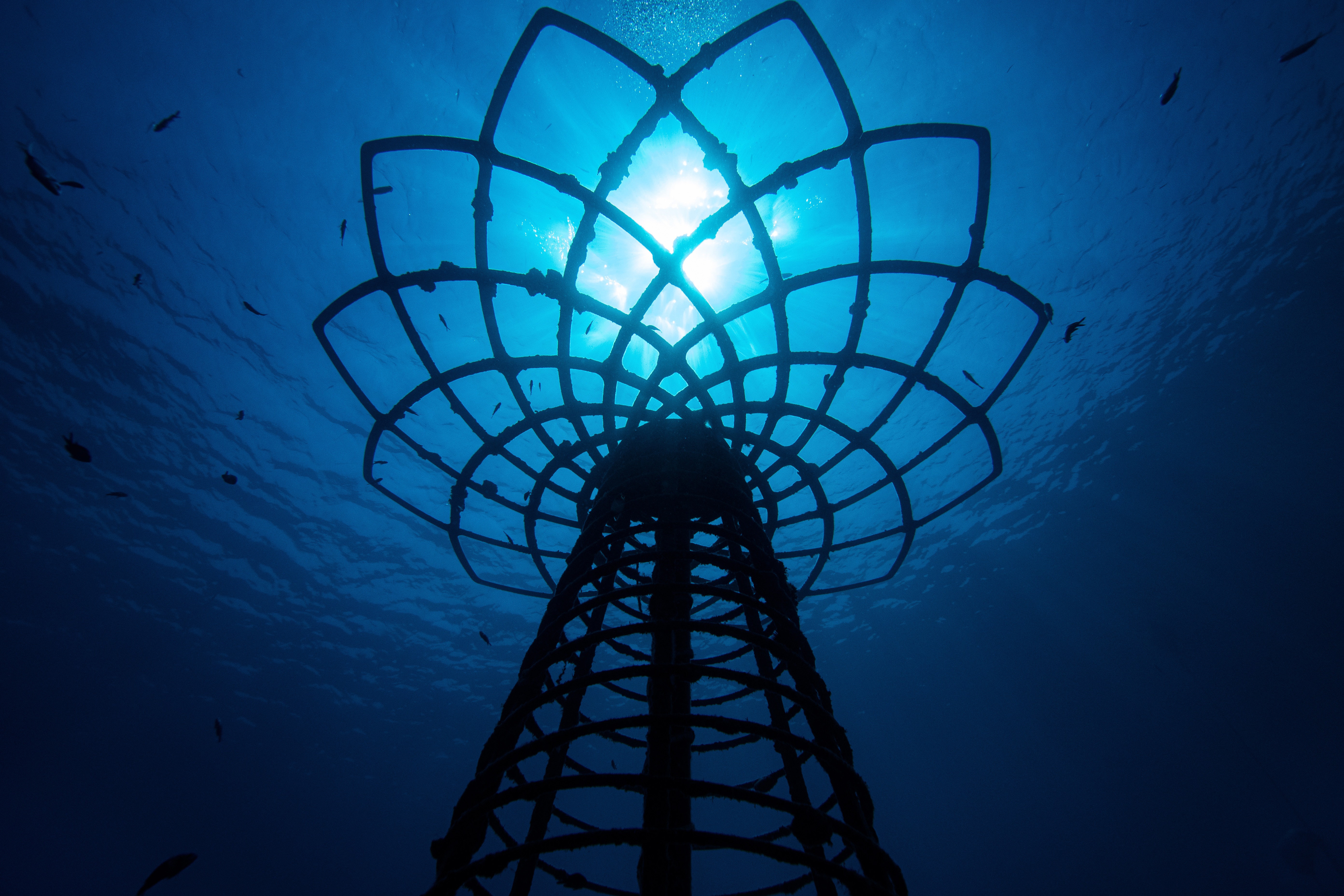
If you could go back and reshoot one project, what would it be and why?
Like many other photographers would say, there is more than one project we would like to reshoot, especially the ones we’ve done in the early stage of our careers. Personally, I would reshoot all the social issue reportages done between 2015 and 2017. But, if I had to pick an environmental shoot, I would reshoot my reportage 'Submerged Conscience' done in the Great Barrier Reef. In 2018 I didn’t have a diving certification, or a proper underwater camera, as I was using GoPro for shooting during snorkeling sessions.
I’m in a lucky position that at the end of 2022 I will be heading back to Australia to reshoot this footage, to include it in the second chapter of my long-term project 'Symbiosis'. I'm sure that with my current knowledge of the topic and my upgraded skills I will do a better job!
Are you working on any new projects?
I’ve been working on 'Symbiosis' since the start of 2022, which will take at least four years to finish and is focused on the impact of climate change and anthropological stressors on the marine environment and coastal communities of the world. These include coral bleaching, biodiversity loss, coastal erosion, sea level rise, and ocean acidification and I want to investigate how these affect the lives of coastal communities.
A central part of the project will be dedicated to the positive solutions that both local communities and scientific authorities are undertaking for our future in preserving the health of the marine ecosystem. I hope to inspire stakeholders to increase positive actions aimed at preserving the marine environment for generations to come, so an exciting few years to come!
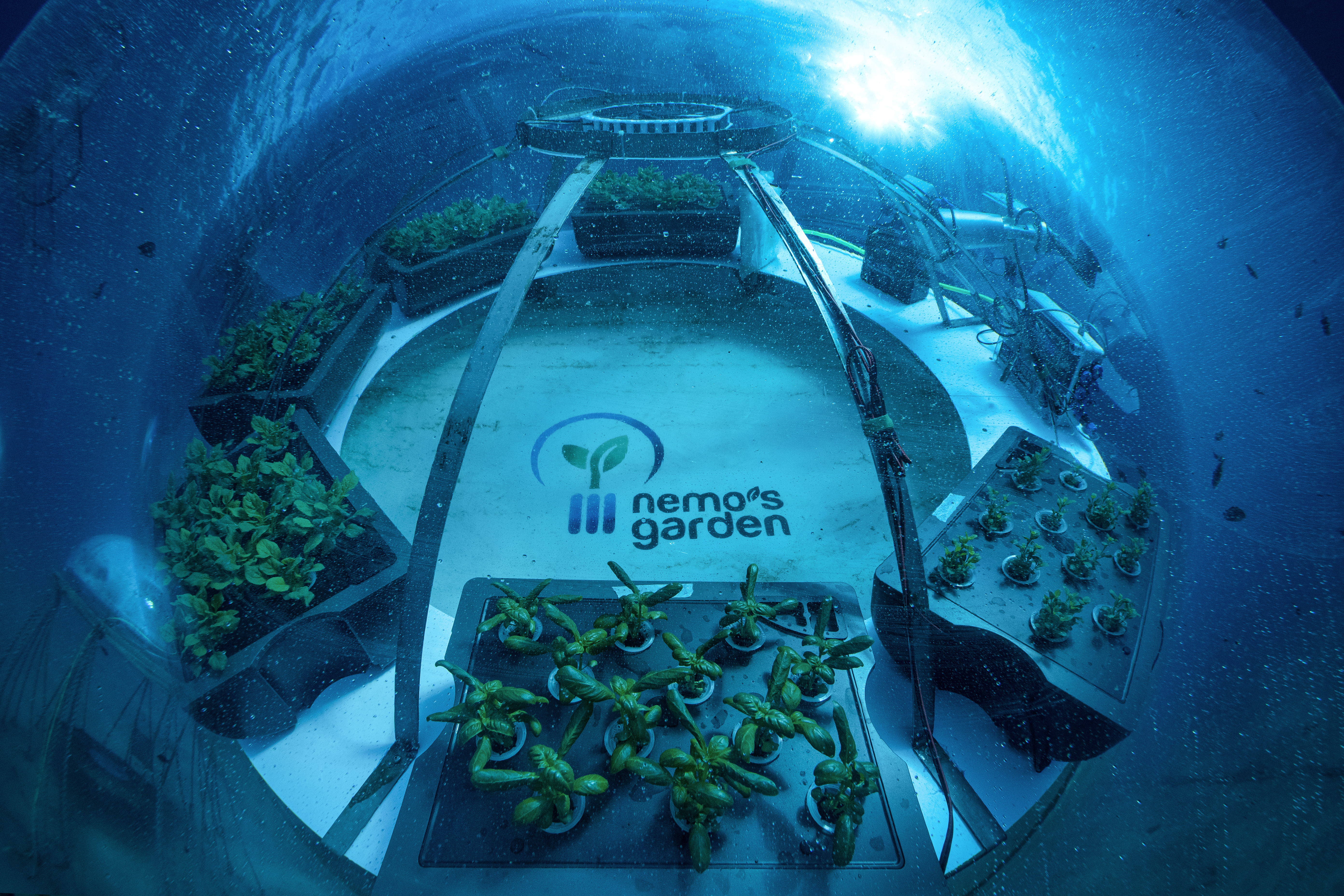
What is the best advice you've received about pursuing a career in documentary photography?
Definitely not to give up, and follow your dreams. I'm probably just halfway there in my career and, from experience, I can say find stories you’re really passionate about sharing and that will keep you determined.
What equipment do you use?
I used a Nikon D800 for the pictures on the surface and a Nikon D7500 for the underwater shots.
• Best underwater housing for cameras and phones
Other than Italy, what countries have you felt most at home in?
Since the beginning of my photojournalism career in 2015, I have lived in Nepal, Peru, Australia, New Zealand, and in the last months in Thailand and Indonesia. I must say that in every country I left a piece of my heart and met many nice people who became my dear friends.
For me, the concept of home is where you are living in the present. I have never felt a stranger, because I think that our home is actually our planet and not a single state with boundaries created by governments. That is also why I'm really committed to telling stories about the environment, because they unify us as human beings instead of separating us as individual citizens.
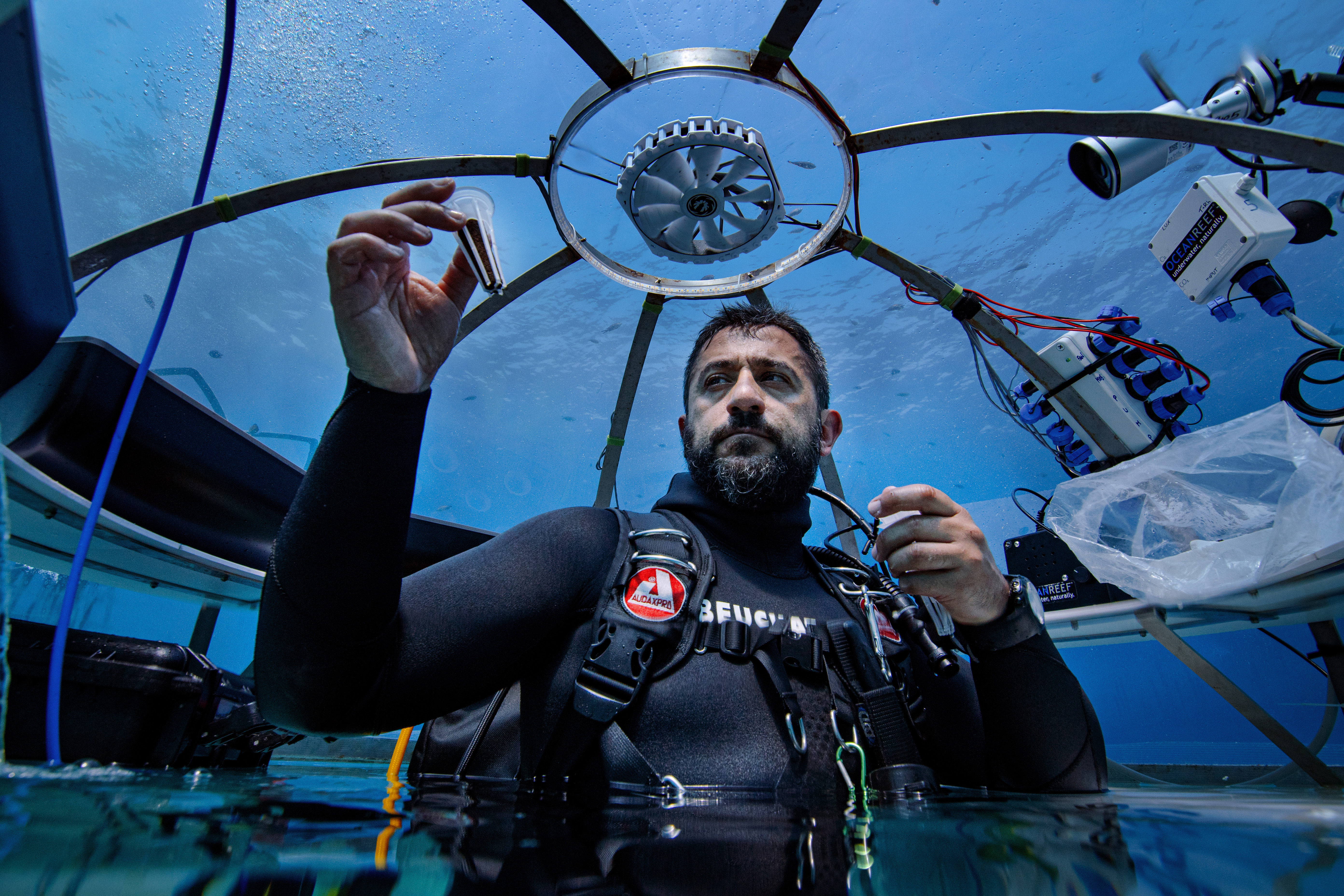
If you were stranded on a desert island, which bits of kit would you bring with you?
Well, this is a tricky question. Of course as a normal person I would bring a survivor kit that permits me to find food and maybe helps me build a safe shelter. As a photographer, I would bring a film camera with a lot of film to document my experience as a survivor, hoping that someone one day will find me. It would be interesting sharing this kind of experience and also could be a way of keeping me occupied from not going mad. At the end of the day, I hope to be lucky or smart enough to not face these kinds of problems in the future.
How important is it for competitions such as EPOTY to continue to raise awareness around issues such as climate change?
It is extremely important. I’m just one person but competitions like EPOTY bring in thousands of entries and the winners’ are displayed around the globe to inspire positive actions aimed at preserving and protecting our planet. The high-profile sponsors such as Nikon, CIWEM and WaterBear play an important role in encouraging people to enter, and raise awareness amongst multiple different stakeholders. For any other aspiring environmental photographers or those who are interested in raising awareness for climate issues out there, I can’t recommend entering the EPOTY competition enough.
It is a great opportunity to find other people who don’t give up in front of these new challenges brought by climate change but rather are putting a lot of effort into finding new solutions for our future which makes me so much more hopeful.
Have you got any goals you are currently working towards?
My aim is to encourage people to understand the importance of our environment. My approach is to document the positive solutions that mankind is pursuing in order to stimulate a proactive debate about our future. Rather than simply documenting the impact of climate change on our planet, which could be counterproductive as it can generate such feelings of hopelessness, I hope to inspire people with a positive climate alternative vision for the future.

Having studied Journalism and Public Relations at the University of the West of England Hannah developed a love for photography through a module on photojournalism. She specializes in Portrait, Fashion and lifestyle photography but has more recently branched out in the world of stylized product photography. Hannah spent three years working at Wex Photo Video as a Senior Sales Assistant, using her experience and knowledge of cameras to help people buy the equipment that is right for them. With eight years experience working with studio lighting, Hannah has run many successful workshops teaching people how to use different lighting setups.
